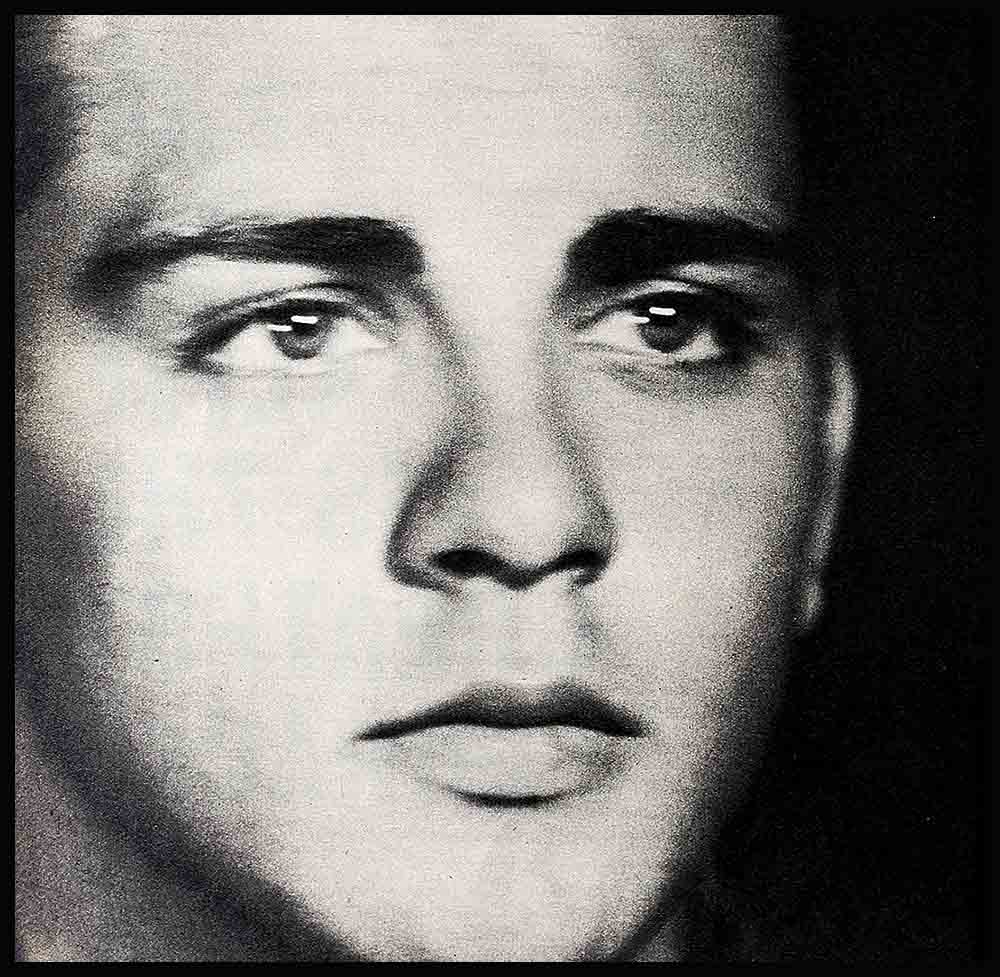
The Boy Who Become A Man Too Soon
He wasn’t driving fast, but on a day like that when the accident happened, even thirty miles an hour was risky. Now, looking back, he can recall passing the school not ten minutes from his house, and seeing the truck ahead in the other lane. Almost before it happened, the second he hit the patch of ice, he knew the car would skid. The back wheels spun, the front wheels seemed to shoot out from under the car, his hands froze and he watched the truck bearing down on him. . . . Then, in the same split second-close but muffled, as if it weren’t really happening to him-chrome and steel smashed, twisted, tore; glass buckled and sprayed past his face. . . . He sat dazed for a moment, Then he moved. When he realized he was not hurt, he began to tremble. Thank God, he thought. Thank God! Then, suddenly, people were rushing in, talking fast, asking questions, grabbing at him, tearing his clothes.
“It’s Fabian!” a girl screamed.
It would have to be in front of a school, he thought.
Then the wail of a patrol car, the officer stern, unsmiling: “Let’s see your license.”
“Fabian—can I have your autograph?” —a girl with blue eyes and blond hair.
The truck driver stood there unnoticed, pale, shaky.
By the next morning it was in all the papers: “Fabian Forte, 19, demolishes car in accident with truck. . . .”
Later, he just sat there in his room, letting the impact of the crash sink in. telling himself he could take this one . . . just like he took all the others.
For Fabian, skidding into a truck on an icy road was just one more collision in a life which, for the past four years, has never been safe or smooth.
Less than a few weeks before the accident, newspapers had carried other headlines: “Fabian and Manager Split.”
Columnists asked: “Is Fabian too big for his own good?” Magazines claimed they carried “the whole story,” but they didn’t. Fabian wouldn’t tell his story. His friends urged him to talk, to give his side, but he remained silent.
An auto crash threatens life and limb. The danger passes in a single impact. Fabian’s smash-up with manager Bob Marcucci still threatens him: as an actor, singer, human being.
That’s why, for the first time, we are publishing the story behind the smash-ups of Fabian Forte. . . .
It goes like this.
Robert Marcucci, dynamic young head of Chancellor Records. actually did discover an unknown kid named Fabian Forte on a Philadelphia doorstep in 1959.
That same day, Fabian’s father. Dom Forte, had been rushed to the hospital with a heart attack. From the first moment, Bob took over. And from then on, Bob replaced the ailing Dom in many ways in Fabian’s life.
The boy was sweet, easy-going, honest and very young.
He listened to the promises of money and fame. He could hear, just like anyone else in his place, the waves of applause echoing through his imagination.
They began to cut records, terrible records. Bob had a partner in the business. Peter de Angelis. Pete handled the music end, Bob managed the talent, though technically Pete was Fabian’s co-manager.
Bob insisted on voice lessons. The first two teachers gave up. Only Bob’s faith kept the dream alive.
He took Fabian to sing at record hops, close to home at first, then greater distances. The dream began to grow. Sometimes even Fabian believed in it because he had faith in Bob’s faith.
And through it all, week after week, month after month. there was Bob—managing. thinking up gimmicks, pushing, lifting, building a career out of air.
Before the first year was over, however, something happened that Fabian never learned about until now.
A close friend. someone who genuinely loved both him and Bob, gave Marcucci a fateful warning:
“Stop now,” she said. “Don’t make the boy’s life your life. No one can own another person. Stop now. Or one day you’ll be terribly hurt.”
Bob listened, nodded. Yes. She was right. He’d try.
But every day it got harder. After all, the dream was blossoming now. He was the one who had built that dream, who had taken a nobody and forced him into the mold of a star. And after all, a star was somebody, wasn’t he? And a star was what Bob had always secretly wanted to be himself.
Meanwhile, Fabian doggedly attended school. His previously high marks dropped. He sought tutoring before class from interested teachers.
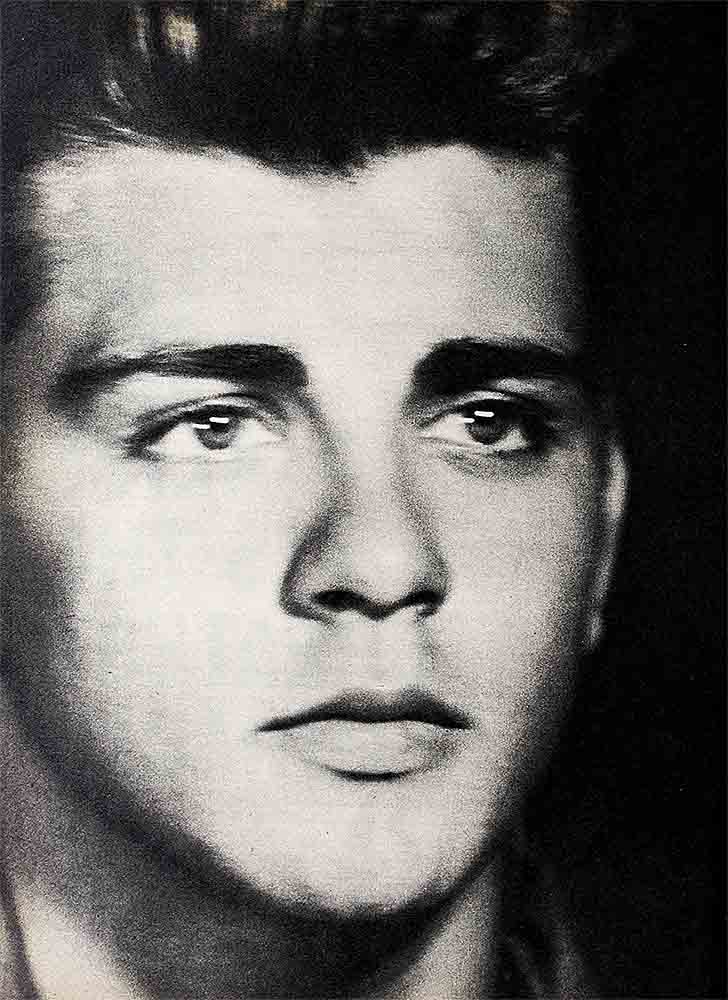
Once in a while he had time for dates. As one friend recalls: “Fabian’s folks would leave the light on in his room when he went out. From where Bob lived, he could look over the back fence and see Fabe’s house. Believe me, Bob’s light stayed on until Fabian’s went out. He couldn’t go to bed himself until he knew the boy was safe at home.”
A few friends asked themselves privately whether Bob’s concern was that of a father or a truant officer. Perhaps it was both.
On the road, Bob found it difficult to tear himself from Fabian’s elbow. After all, he had promised the Fortes to look out for their son. Many of his reasons were sound: Fabian was a minor with no show business background. He was easy prey in a ruthless, rugged business.
“He has to be guarded, protected,” Bob repeated firmly, though some noted the protection kept off friends as well as wild fans and unwelcome business acquaintances.
When Fabian made his first film, “Hound Dog Man,” it meant long stays on the West Coast. Bob trusted no one else to steer him through the new pitfalls and temptations.
The picture got cool but receptive reviews. Next came “High Time,” with Bing Crosby and Tuesday Weld. Fabian’s movie career was turning into something big. He was ready to stop singing and devote himself exclusively to acting.
Meantime, Bob induced the Fortes to move out of the modest neighborhood in Philadelphia where they had raised their three boys. He arranged for the purchase of four homes in a rather isolated middle-class development near Haddonfield, New Jersey.
Bob and his mother shared one, relatives lived in two others and the Fortes lived in the fourth. all shared picture windows that gazed blankly into each other, gardens with back yards that interlocked, and a community pool.
To Bob it seemed perfect. Now they were truly “one big happy family.” Yet the culmination of his dreams was the beginning of a nightmare that has not yet ended.
Movie ties kept Fabian on the West Coast. Visits to his family grew more infrequent. Each moment with him was precious to them. And more and more they felt that they were losing their son. Dom and his wife looked at each other with eyes that admitted the truth: They had never asked that their son be a star. Only that he be a son.
It was shortly after “High Time” that rumors about a rift between manager and managed began to circulate.
First came the story that Fabian was working too hard, his health was being jeopardized and that if anyone was to blame it was Bob.
Next came stories of arguments, angry words that filtered out of the rented Beverly Hills apartment.
As one neighbor recalls: “Those apartments were built like a cheap motel— paper-thin walls. Besides, the windows were always open, facing the pool. It was no secret that Bob and Fabian had their differences. Big ones.”
For a while, the rumors stayed on the West Coast. Back in New Jersey the Fortes had no warning of impending disaster.
A close friend of Fabian recalls: “in the beginning I thought I saw an awful lot of things, but nobody else seemed to see them. Bob rarely left me alone with Fabian. When we did have a minute together it seemed as if Fabe would start to tell me something, then change his mind and clam up.
“I’d say, ‘Is everything O.K.?’
“And he’d always answer, ‘Yeah, sure. What could be wrong?’ ”
Several magazines leaked the story. Both Bob and Fabian denied it. The truth, however, appeared that the boy was being pushed beyond his endurance.
Eventually, he was given a physical. The doctor told him to take it easy and the boy went back to the grind.
Dates, of course, were limited to weekends. When Fabian fell for actress Katie Kelly, Bob disapproved. Whenever possible, Bob got a date of his own and doubled with Fabian.
Toward the end, as the rift opened up publicly, one Hollywood associate tells of “the scenes in front of Fabian’s friends, not only at the apartment, or the house they later rented in Hollywood, but at parties and on dates . . . scenes that would humiliate any sensitive person.”
By January, 1961, though few suspected it had gone that far, the lid was about to blow off the most publicized manager-star relationship in show business.
Fabian had confided his troubles to no one, but “you could see he was almost driven out of his mind,” according to one associate.
Another intimate of the situation reports: “Fabe had let things go very far. almost too far. From the business end right on down to personality conflicts.”
A third says: “Let’s just say things were not being handled to Fabian’s advantage, including finances.”
Normally, he would have taken the problem to his father. But because of Dom’s heart condition, Fabian hesitated to burden him with such an explosive problem. Finally, a friend who had sensed the conflict for many months acted:
“Most people had forgotten,” he says, “that Fabian really had another manager as well—Peter de Angelis. Somehow, Fabe had gotten the idea Pete didn’t like him and Pete thought Fabian didn’t want to work with him.
“I’d suspected many disturbing things for a long time. I began to check and found they were true. I decided to confront Pete with the facts. We sat up all one night talking. I found out Pete was concerned with Fabian, far more than we had dreamed. When Fabian heard Pete had gone to bat for him, he broke down. All he could say was: ‘There’s someone on my side, after all.’ ”
It was decided then that someone other than Bob would accompany Fabian on the road. Unknown to the public, the relationship went on probation, at Fabian’s request, for the remainder of the year.
Ultimately, the strain began to tell on Bob, too. His investment in Fabian—financial as well as personal—was too large to be calculated. His family became alarmed. As one says: “He looked like the walking dead.”
The Fortes asked themselves: “What could have happened that our boy could do this to a nice guy like Bob?”
When they tried to discuss it openly, they were told: “Fabian’s an uncontrollable kid. You can’t do anything with him. You don’t see what kind of a kid he is.”
They were shocked. Fabian had always been a good, gentle boy. Was this to be the final, terrible toll of show business on their simple, unaffected family?
Rumors hinted that Bob was making himself sick over Fabian’s ingratitude. Actually, he was sick. By spring he was hospitalized with a kidney ailment.
However, he had been under a doctor’s care for some time. He had been warned for years to slow down, stop trying to keep pace with a boy half his age. The illness was no fault of Fabian’s, though the final breakdown probably could he linked to the high tension in Bob’s life.
Meantime, without Bob at his elbow, Fabian seemed to grow up overnight. He surprised interviewers by sounding off as never before.
He admitted that, while Bob wanted him to continue making records, he wanted to act. He wanted to forget the criticism that plagued him as a rock ’n’ roll star.
Last fail, his acting on a “Bus Stop” TV episode despite a controversial plot won him critical acclaim. There was no more doubt. Fabian had to act. It was right for him and he knew it.
Toward the end, it became apparent that only a clean, complete break would resolve the differences on both sides. Finally, Fabe called his parents: “Start looking for land. We’re going to build a new house!” The Fortes were incredulous. “Even when they at last agreed it was better for Fabian to break away,” one friend reports, “they refused to do anything that might hurt Bob. Even now, after all the upset, they feel very sympathetic to him.”
A few weeks later, an official statement to the press announced that Bob and Fabian had separated on “amicable” terms.
At present, there is one more matter to be cleared up before Bob Marcucci and Fabian are finished for good: Fabian’s contract runs till he reaches twenty-one. Two more years. The contract is now in the process of litigation. Both sides hope the matter will never reach court. If it does, Fabian may have to tell a story he would prefer to forget forever.
One observer reports: “Bob is asking more for the remainder of that contract than Fabian was ever allowed to keep in all the time he’s been in show business.”
Fabian says: “I don’t care about not having much money. I just want him to do right by me now.”
Bob’s answer is, “I did the best I knew how.” He has indicated that he is the one taking the contract to court—not the other way around.
Fabian say s, “People won’t believe stories that aren’t true. If they like me, they’ll like me for myself. I don’t want to make statements about Bob.”
All Fabian will allow himself to say is this: “I am grateful. I will always be grateful. But I found out the world doesn’t stop turning because you decide to stand on your own feet, Something bad always hurts most the day it happens. Now it doesn’t hurt anymore.”
Behind that sentence lay more toil, trouble, struggle, self-denial and heartbreak than most of us can ever dream. A starmaker saw a dream take form, flourish and tear loose from his hands. A boy lost the precious years as a teenager and became a man too soon.
Perhaps Fabian sums it up as well as anyone can when he says: “There comes a time when an individual has to make his own decisions. If I make any mistakes from now on I won’t have anybody else to blame. I’m nineteen. I’ve already learned too much too fast. But I still have a lot more to learn,”
Maybe, during these last weeks, Bob Marcucci remembers certain words, too. The words of that old, dear friend so very long ago: “Stop now . . . or one day you’ll be terribly hurt. . . .”
Perhaps he remembers the rest of that warning as well. The part that went like this: “If you don’t—you’ll have only yourself to blame.”
More than one old friend foresaw the heartbreak, way back when. More than one knew it had to happen the way it has, for Fabian’s sake.
And so, in his heart, did the man who put Fabian where he is today.
—BARBARA HENDERSON
Fabian’s in “Mr. Hobbs Takes a Vacation” and in “The Longest Day,” both for 20th.
It is a quote. PHOTOPLAY MAGAZINE MAY 1962


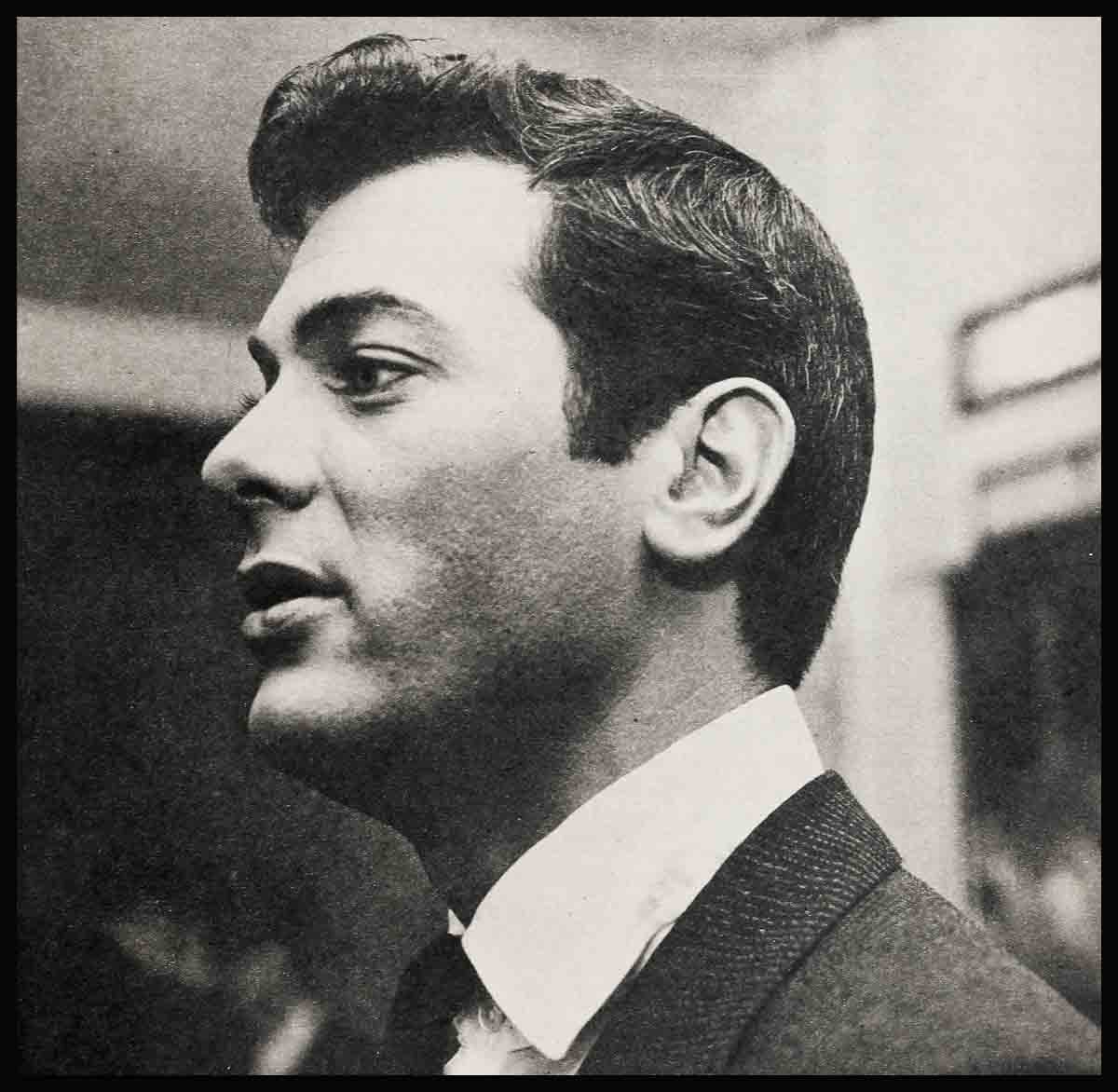
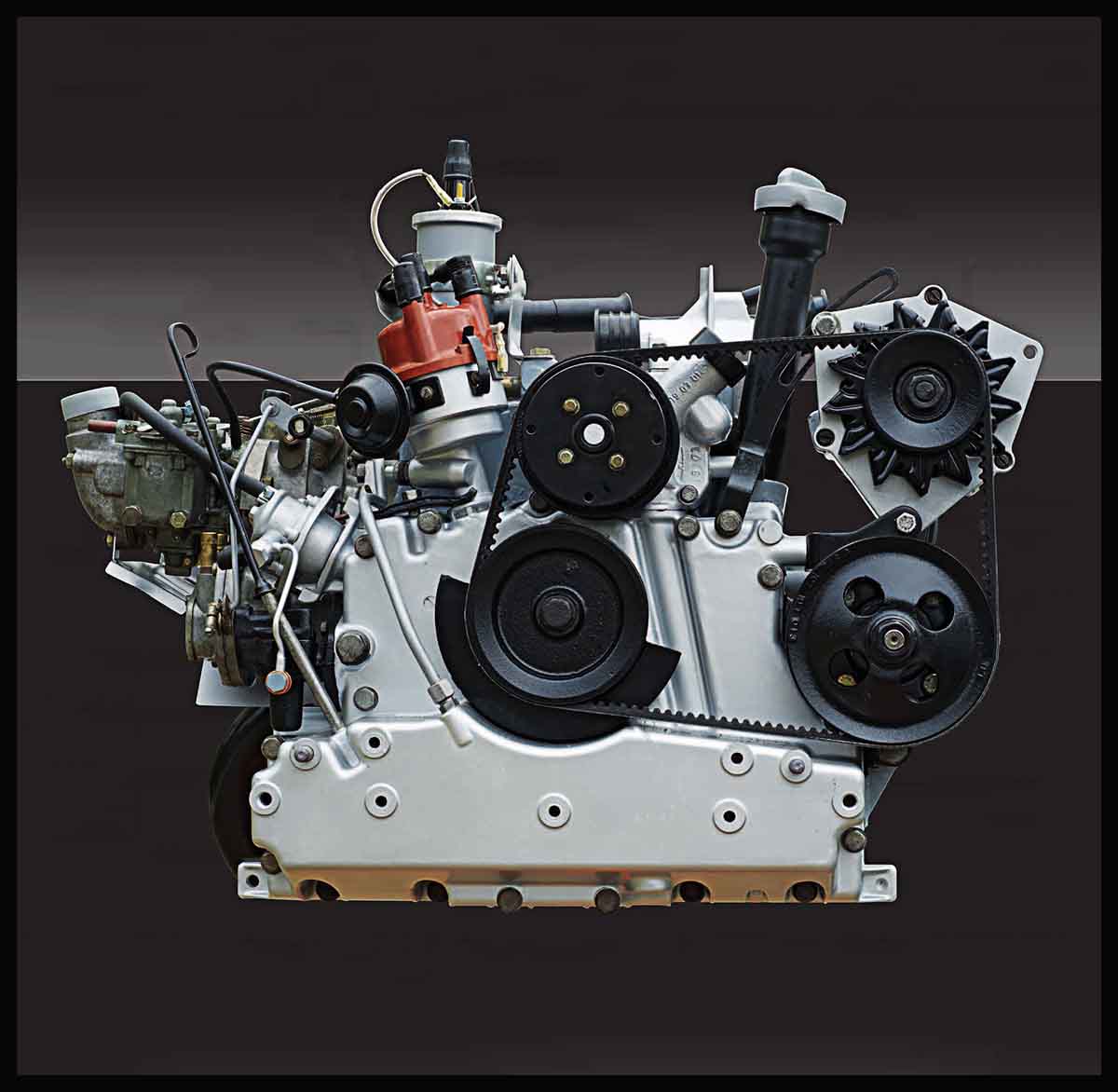
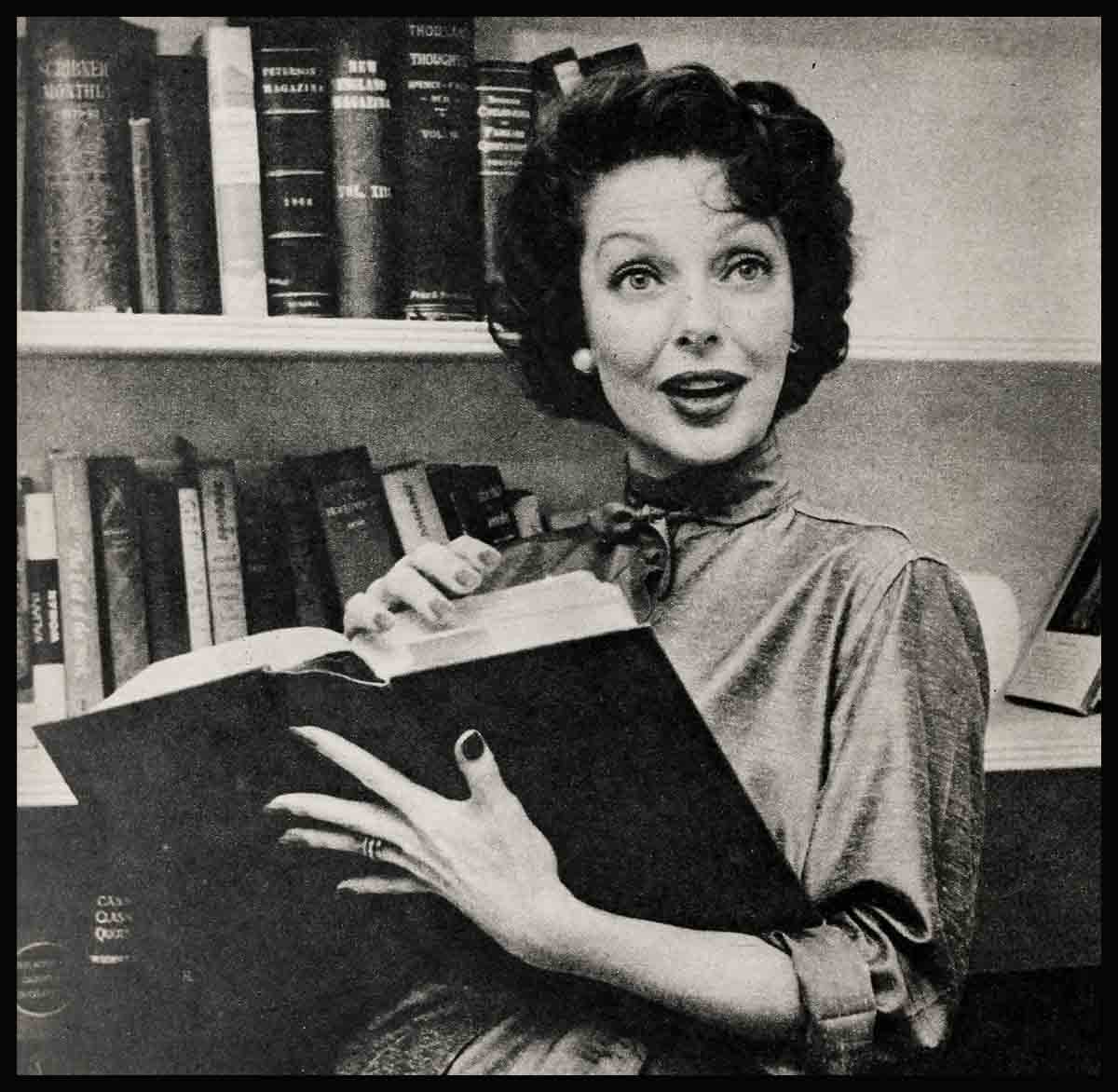
vorbelutrioperbir
4 Temmuz 2023Hey there, You have done a great job. I will certainly digg it and personally suggest to my friends. I am confident they’ll be benefited from this web site.